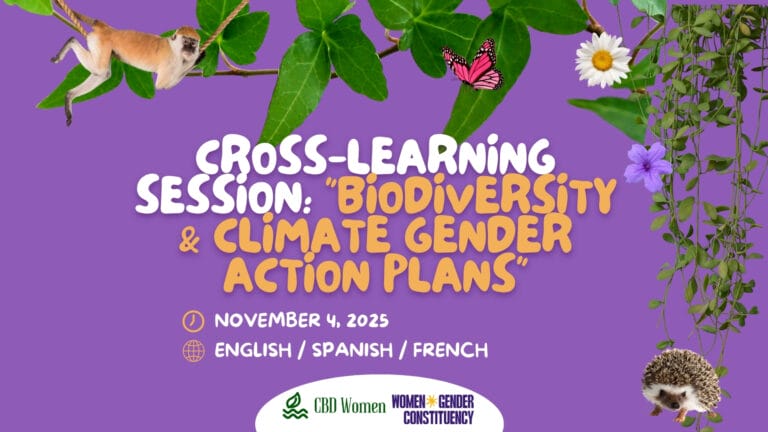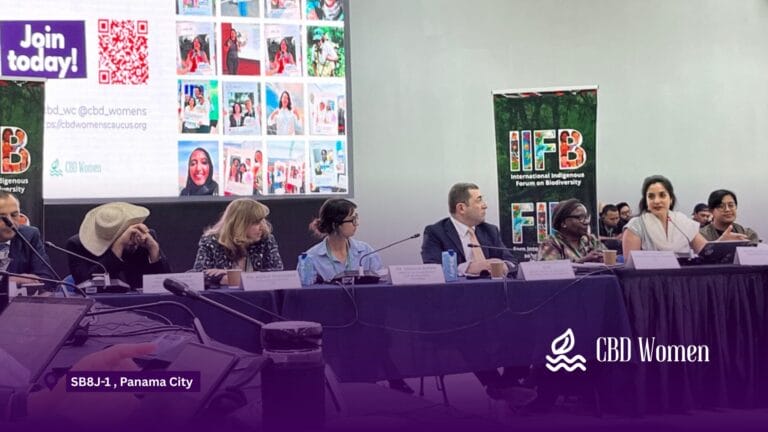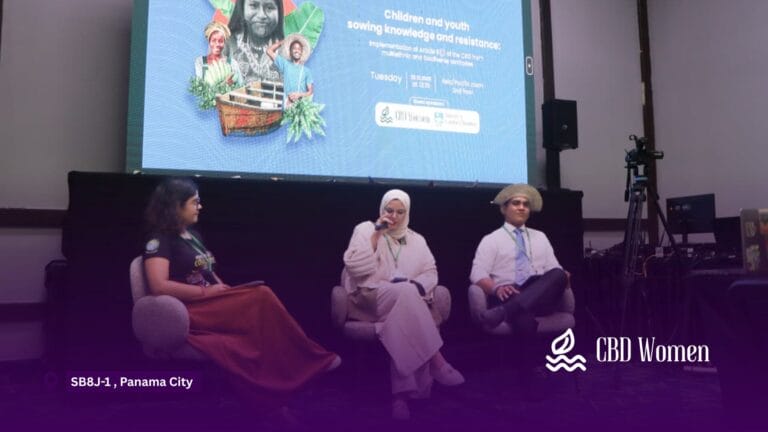By Ms.Cristina Eghenter, CBD Women’s Caucus Board of Directors member, Global Governance Policy Coordinator, WWF International
Disclaimer: The views expressed in this blog are those of the author and do not necessarily reflect the official position or opinions of the CBD Women’s Caucus
From 23 to 25 September 2025, the CBD Women’s Caucus (CBD WC) took part (online) in the Regional Dialogue for the Western Europe and Others Group (WEOG) and Parties covered by the European Subregional Technical and Scientific Cooperation Support Centre (TSC), held in Brussels, Belgium, and online. The meeting, organized by the Secretariat of the Convention on Biological Diversity (SCBD) and the European Commission’s Environment Division, gathered Parties, experts, and stakeholders to discuss progress in implementing the Kunming-Montreal Global Biodiversity Framework (KM-GBF), preparations for the 7th National Reports (NR7), introduction to the European subregional Technical Support Centres, related capacity needs and collaborations.
Gender-Responsive Monitoring and 7th National Reports
During the first day of discussions, In a dedicated intervention, the CBD Women’s Caucus highlighted in a dedicated intervention that gender equality is a key enabler for the KM-GBFramework’s success —supported by important decisions, Section C of the GBF, and Target 23. The presentation illustrated the various ways in which gender equality can be reported in the 7th National Reports and called on Parties to ensure the inclusion of women and girls in national consultations, integrate sex-disaggregated data, and apply the Gender Plan of Action across all stages of monitoring and reporting. The WC also reminded participants of the upcoming mid-term review of the Gender Plan of Action, stressing the need to integrate gender progress in national reports and the Global Review.
While recognizing the value of women’s, Indigenous Peoples’, local communities, and youth’s contributions to achieving the KM-GBF goals and targets, parties also acknowledged challenges in integrating non-state actors (NSAs) into reporting processes.
Strengthening Regional Collaboration and Knowledge Hubs
The following sessions on Sept 24 and 25 introduced the European Subregional Technical and Scientific Cooperation Support Centre (TSC) and the new Knowledge Hubs, designed to support 44 Parties with data, capacity-building, and governance engagement. These hubs will play a key role in implementing the KM-GBF at national and regional levels, providing technical and policy support — including for Target 23 (Gender Equality).
Slido survey results during the meeting showed that policy and knowledge capacities are most needed for advancing gender-related and human rights-related elements of targets, further underscoring the importance of strengthening regional expertise and collaboration.
Advocating for Inclusion and Traditional Knowledge
Throughout the dialogue, the CBD Women’s Caucus consistently raised the issue of traditional knowledge (TK) and the recognition of TK holders and custodians, highlighting that TK is closely linked to women of Indigenous Peoples and those of local communities, and linguistic minorities, including in rural communities, among small-scale farmers, and traditional herders. The Caucus expressed readiness to contribute to any emerging learning and collaboration platform on traditional knowledge, ensuring that women’s knowledge systems are visible and valued within biodiversity governance.
Looking Ahead
The dialogue reinforced that consistent engagement between the CBD Women’s Caucus and WEOG Parties is essential to continue to mainstream gender equality in the implementation of the GBF. The creation of regional hubs of the CBD Women’s Caucus, similar to youth networks like GYBN, will be a key next step to ensure that women’s voices continue to shape biodiversity policy and decision-making across Europe.




